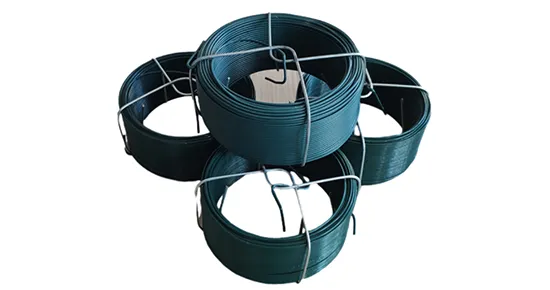-
 Phone:
Phone: -
 Email:
Email:

does rebar tie wire rust
Does Rebar Tie Wire Rust?
When it comes to construction, especially in reinforced concrete structures, the strength and durability of materials play a crucial role. One critical component of this strength is rebar (reinforcing bar) and its associated tie wire. As structures age, understanding the properties and behaviors of these materials under various environmental conditions becomes essential. A common question that arises is whether rebar tie wire can rust and what implications this has for construction projects.
Understanding Rebar Tie Wire
Rebar tie wire is primarily used to secure rebar in place before and during the pouring of concrete. Typically made from steel, tie wire acts as a binding agent to ensure that the rebar maintains its position within the concrete formwork. Given that the rebar is intended to provide tensile strength to concrete— which is naturally weak in tension — the integrity of the tie wire is vital.
The Potential for Rust
Steel, the primary material of rebar and tie wire, is prone to rust when exposed to moisture and oxygen. Rust is a type of corrosion that occurs when iron reacts with water and air, leading to the formation of iron oxides. In environments where humidity is high, or in coastal areas where saltwater can increase the rate of corrosion, the susceptibility of tie wire to rusting becomes a significant concern.
However, it is worth noting that not all tie wire is created equal. Some manufacturers produce galvanized tie wire, which is coated with zinc to provide a protective barrier against rust. This galvanized layer significantly enhances the wire's resistance to corrosion compared to uncoated steel tie wire. Nonetheless, even galvanized tie wire is not immune to rust if subjected to severe environmental conditions or physical damage that compromises the protective coating.
Factors Influencing Rusting
Several factors can influence the rusting process of rebar tie wire
does rebar tie wire rust

1. Environmental Conditions Exposure to moisture, especially in humid climates, increases the likelihood of rust formation. Rainwater, condensation, or exposure to chemicals can accelerate this process.
2. Quality of the Material The quality of the steel used in the tie wire plays an important role. Low-grade steel is more prone to rusting than high-quality steel that may include additional corrosion-resistant properties.
3. Protective Coatings As mentioned, galvanized coatings can prevent rust but may wear off over time due to abrasion or chemical exposure. Understanding the longevity and effectiveness of these coatings is crucial in construction planning.
4. Application Method The way tie wire is applied can also affect its longevity. If the wire is twisted tightly or manipulated excessively, it may become more susceptible to damage, risking the integrity of the protective coating.
Implications of Rusting in Construction
The rusting of rebar tie wire can lead to numerous issues in construction projects. For one, the integrity of the rebar assembly can be compromised. If the tie wire breaks down and fails, the rebar may shift, resulting in weak points in the concrete. This can ultimately lead to structural failures, which pose safety risks and financial burdens due to repairs or rebuilding.
Moreover, rust can also compromise the bond between the rebar and concrete. When rust forms on the rebar itself, it can expand and create cracks in the surrounding concrete, further deteriorating the structure over time.
Conclusion
In conclusion, while rebar tie wire can indeed rust, its susceptibility largely depends on environmental conditions, material quality, and usage practices. For construction projects, it is crucial to consider the choice of tie wire, especially in adverse conditions. Utilizing high-quality, galvanized tie wire can significantly mitigate the risks associated with rust, ensuring the longevity and safety of reinforced concrete structures. Proper precautions and regular inspections are also necessary to catch early signs of corrosion, ultimately leading to safer and more reliable construction outcomes.
-
Wire Mesh for Every Need: A Practical SolutionNewsJul.25,2025
-
Steel Fences: Durable, Secure, and Stylish OptionsNewsJul.25,2025
-
Roll Top Fencing: A Smart Solution for Safety and SecurityNewsJul.25,2025
-
Cattle Farm Fencing Solutions for Maximum SecurityNewsJul.25,2025
-
Affordable Iron Binding Wire SolutionsNewsJul.25,2025
-
Affordable Galvanized Wire SolutionsNewsJul.25,2025
-
Wire Hanger Recycling IdeasNewsJul.25,2025








